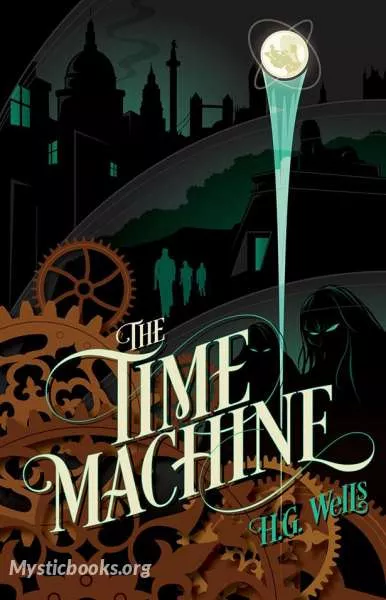
The Time Machine
by H. G. Wells
'The Time Machine' Summary
The book's protagonist is a Victorian English scientist and gentleman inventor living in Richmond, Surrey, identified by a narrator simply as the Time Traveller. Similarly, with but one exception (a man named Filby) none of the dinner guests present are ever identified by name, but rather by profession (for example, "the Psychologist") or physical description (for example, "the Very Young Man").
The narrator recounts the Traveller's lecture to his weekly dinner guests that time is simply a fourth dimension and demonstrates a tabletop model machine for travelling through the fourth dimension. He reveals that he has built a machine capable of carrying a person through time, and returns at dinner the following week to recount a remarkable tale, becoming the new narrator.
In the new narrative, the Time Traveller tests his device. At first he thinks nothing has happened but soon finds out he went five hours into the future. He continues forward and sees his house disappear and turn into a lush garden. The Time Traveller stops in A.D. 802,701, where he meets the Eloi, a society of small, elegant, childlike adults. They live in small communities within large and futuristic yet slowly deteriorating buildings, and adhere to a fruit-based diet. His efforts to communicate with them are hampered by their lack of curiosity or discipline. They appear happy and carefree but fear the dark, and particularly moonless nights. Observing them, he finds that they give no response to mysterious nocturnal disappearances, possibly because the thought of it alone frightens them into silence. He speculates that they are a peaceful society. After exploring the area around the Eloi's residences, the Time Traveller reaches the top of a hill overlooking London. He concludes that the entire planet has become a garden, with little trace of human society or engineering from the hundreds of thousands of years prior.
Returning to the site where he arrived, the Time Traveller is shocked to find his time machine missing and eventually concludes that it has been dragged by some unknown party into a nearby structure with heavy doors, locked from the inside, which resembles a Sphinx. Luckily, he had removed the machine's levers before leaving it (the time machine being unable to travel through time without them). Later in the dark, he is approached menacingly by the Morlocks, ape-like troglodytes who live in darkness underground and surface only at night. Exploring one of many "wells" that lead to the Morlocks' dwellings, he discovers the machinery and industry that makes the above-ground paradise of the Eloi possible. He alters his theory, speculating that the human race has evolved into two species: the leisured classes have become the ineffectual Eloi, and the downtrodden working classes have become the brutal light-fearing Morlocks.
Deducing that the Morlocks have taken his time machine, he explores the Morlock tunnels, learning that due to a lack of any other means of sustenance, they feed on the Eloi. His revised analysis is that their relationship is not one of lords and servants but of livestock and ranchers. The Time Traveller theorizes that intelligence is the result of and response to danger; with no real challenges facing the Eloi, they have lost the spirit, intelligence, and physical fitness of humanity at its peak.
Meanwhile, he saves an Eloi named Weena from drowning as none of the other Eloi take any notice of her plight, and they develop an innocently affectionate relationship over the course of several days. He takes Weena with him on an expedition to a distant structure dubbed "The Palace of Green Porcelain", which turns out to be a derelict museum. Here, the Time Traveller finds a fresh supply of matches and fashions a crude weapon against Morlocks, whom he must fight to get back his machine. He plans to take Weena back to his own time. Because the long and tiring journey back to Weena's home is too much for them, they stop in the forest for the night. They are then overcome by Morlocks in the night, whereby Weena faints. The Traveller escapes when a small fire he had left behind them to distract the Morlocks catches up to them as a forest fire; Weena and the pursuing Morlocks are lost in the fire and the Time Traveller is devastated over his loss.
The Morlocks open the Sphinx and use the time machine as bait to capture the Traveller, not understanding that he will use it to escape. He reattaches the levers before he travels further ahead to roughly 30 million years from his own time. There he sees some of the last living things on a dying Earth: Menacing reddish crab-like creatures slowly wandering the blood-red beaches chasing enormous butterflies, in a world covered in simple lichenous vegetation. He continues to make jumps forward through time, seeing Earth's rotation gradually cease and the sun grow larger, redder, and dimmer, and the world falling silent and freezing as the last degenerate living things die out.
Overwhelmed, he goes back to the machine and returns to his own time, arriving at the laboratory just three hours after he originally left. He arrives late to his own dinner party, whereupon, after eating, the Time Traveller relates his adventures to his disbelieving visitors, producing as evidence two strange white flowers Weena had put in his pocket.
The original narrator then takes over and relates that he returned to the Time Traveller's house the next day, finding him preparing for another journey and promising to return in a short time. However, the narrator reveals that he has waited three years before writing and stating the Time Traveller has not returned from his journey.
Book Details
Language
EnglishOriginal Language
EnglishPublished In
1895Authors
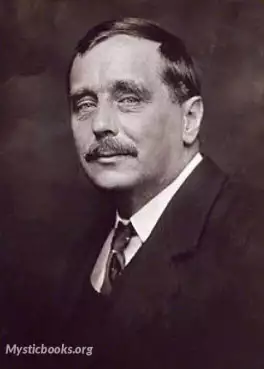
H. G. Wells
England
He was most prominent as a forward-looking, even prophetic social critic who devoted his literary talents to the development of a progressive vision on a global scale. A futurist, he wrote a number of...
Books by H. G. WellsDownload eBooks
Listen/Download Audiobook
Related books
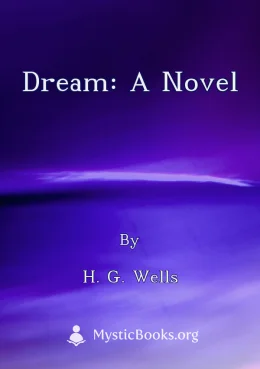
Dream: a novel by H. G. Wells
In a Utopian future, Sarnac recounts a vivid dream he experienced. Within this dream, he lived the entire life of Harry Mortimer Smith, an Englishman...
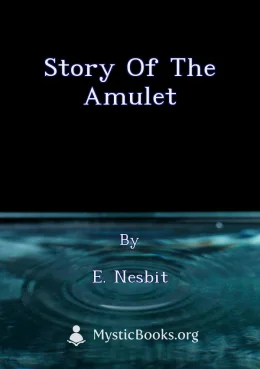
Story of the Amulet by E. Nesbit
The Story of the Amulet is a novel for children, written in 1906 by E. Nesbit. It is the final part of a trilogy of novels that also includes Five Chi...
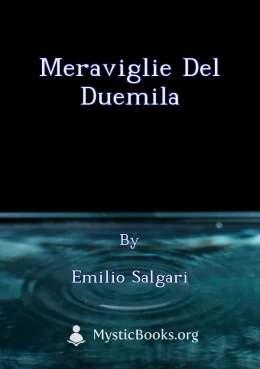
meraviglie del Duemila by Emilio Salgari
Siamo nel 1903 e due uomini, grazie alla scoperta di un principio attivo di una strana pianta esotica che sospende le funzioni vitali, riescono a viag...
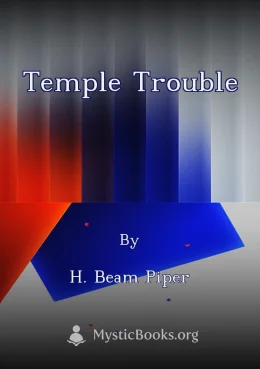
Temple Trouble by H. Beam Piper
In a world where parallel timelines coexist, the ParaPolice are tasked with maintaining order and preventing interference between them. However, when...
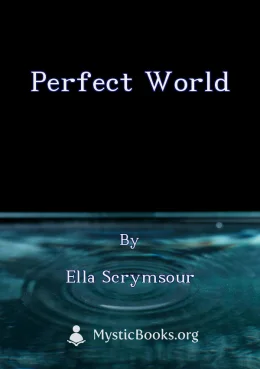
Perfect World by Ella Scrymsour
In 'Perfect World', two young men from a coal-mining town find themselves transported to a hidden underground world inhabited by a long-exiled race of...
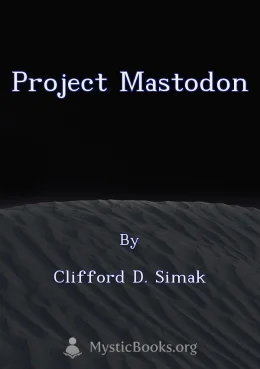
Project Mastodon by Clifford D. Simak
In 'Project Mastodon,' a group of individuals embark on a daring journey to the distant past, 150,000 years back in time, to a world inhabited by mast...
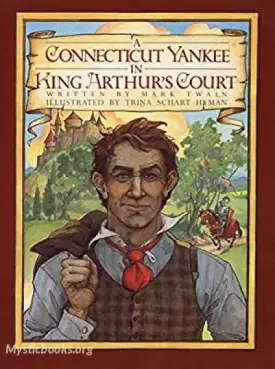
A Connecticut Yankee in King Arthur's Court by Mark Twain
A Connecticut Yankee in King Arthur's Court is an 1889 novel by American humourist and writer Mark Twain. The book was originally titled A Yankee in K...
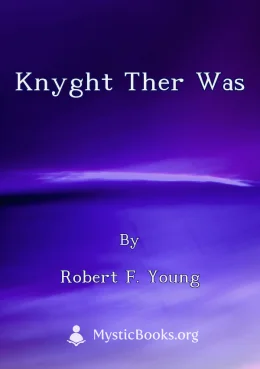
Knyght Ther Was by Robert F. Young
In a future where time travel is a reality, Tom Mallory is a time-thief who travels back to 542 to retrieve the Holy Grail. However, his journey is no...
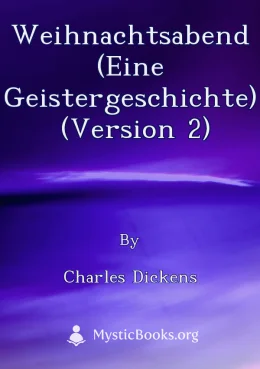
Weihnachtsabend (Eine Geistergeschichte) (Version 2) by Charles Dickens
In der Weihnachtsnacht begegnet der alte und geizige Ebenezer Scrooge dem Geist seines verstorbenen Geschäftspartners Jacob Marley, der ihm eine düste...
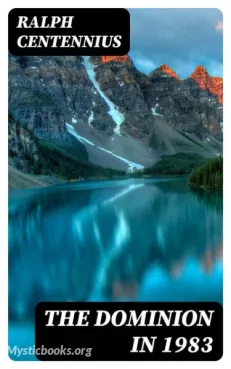
The Dominion in 1983 by Ralph Centennius
Step into a gripping tale of time travel and intrigue as "The Dominion in 1983" propels readers on a thrilling journey through the corridors of histor...
Reviews for The Time Machine
No reviews posted or approved, yet...